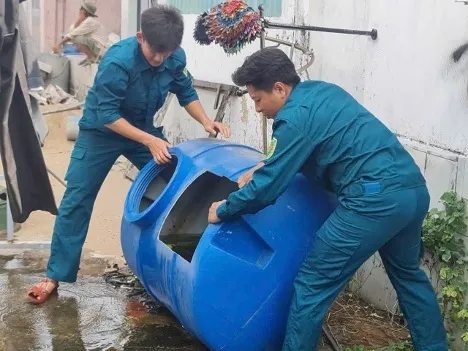
The number of dengue fever cases has increased since June and is now spreading in many areas. The total number of outbreaks detected is 3,158. Some areas with high numbers of cases include: Cu Chi commune (578 cases), Vinh Loc commune (478 cases), Ba Diem commune (378 cases), Binh Tan ward (359 cases), Binh Duong ward (266 cases), Di An ward (237 cumulative cases), Tan Khanh ward (158 cases), Thuan Giao ward (151 cases), Vung Tau ward (99 cases)...
Faced with complicated developments, the Department of Health has developed a plan for admission and treatment to prepare adequate resources for readiness. The city's health sector has synchronously deployed solutions to respond quickly and promptly to the increase.
In addition, it is necessary to mobilize available resources to the maximum extent possible, ensuring reasonable treatment routing between medical examination and treatment facilities assigned by the Department of Health to receive and treat patients.
Hospitals are ready to expand the number of beds to receive dengue fever patients; have resources ready to immediately deploy solutions when mobilized by the Department of Health when an epidemic breaks out according to situations; ensure that the human resources participating in the examination and treatment of dengue fever must be professionally trained to meet the requirements of treatment capacity.
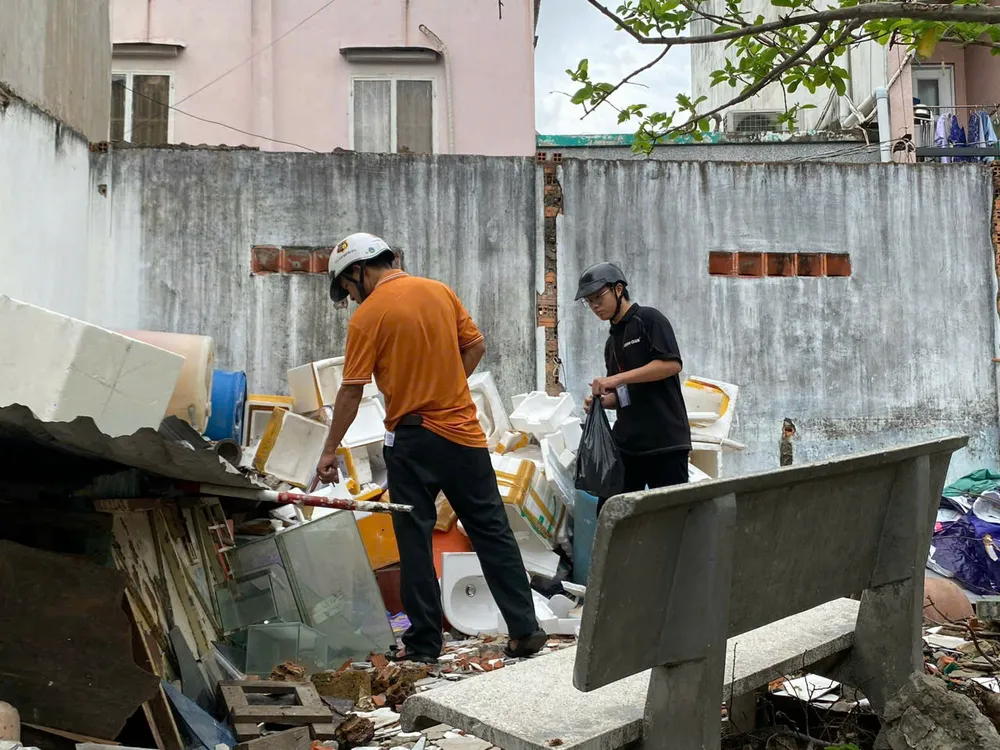
Children's Hospitals 1, 2 and City Children's Hospital will receive and treat all severe dengue cases with warning signs and complicated underlying diseases. General hospitals with pediatric departments and pediatric specialized hospitals: receive and treat dengue cases with warning signs.
The Hospital for Tropical Diseases is the main unit receiving and treating seriously ill patients requiring intensive care (less than 20 cases/day); giving priority to receiving all severe dengue cases requiring ICU treatment, especially cases with risk factors such as obesity, diabetes, hypertension, etc. General and specialized hospitals receive and treat dengue cases with warning signs, dengue with underlying diseases; at the same time, are ready to receive and treat seriously ill cases without dengue transferred from the Hospital for Tropical Diseases.
“When the number of severe dengue cases requiring treatment in the intensive care unit exceeds 20 cases/day, activate the city's intensive care network for dengue fever treatment and mobilize resources from the city's hospitals. Hospitals such as: Tropical Diseases, Gia Dinh People's Hospital, 115 People's Hospital, Nguyen Tri Phuong Hospital, Trung Vuong Hospital, Binh Duong General Hospital, Ba Ria Hospital, Vung Tau Hospital prioritize receiving and treating all severe dengue cases, dengue with warning signs and complicated underlying diseases. General and basic specialized hospitals receive and treat dengue cases with warning signs,” the Ho Chi Minh City Department of Health requested.
The Department of Health requested the following hospitals: People's Hospital 115, Gia Dinh People's Hospital, Nguyen Tri Phuong Hospital, Trung Vuong Hospital, Binh Duong General Hospital, Ba Ria Hospital, Vung Tau Hospital to plan to assign resuscitation specialists to work at the Tropical Diseases Hospital to exchange expertise and clinical experience, improve capacity and increase the effectiveness of treating severe dengue patients.
At the same time, closely coordinate with the Hospital for Tropical Diseases in consultation, exchange and share expertise in treating severe dengue patients with complex underlying diseases. Continue to effectively implement the activities of the City's Dengue Treatment Expert Group, strengthen consultation and professional support for medical examination and treatment facilities as assigned. Send personnel to participate in the City's Intensive Care Network for Severe Dengue Treatment, enhance the role of consultation and professional guidance for medical examination and treatment facilities that are treating dengue cases with warning signs and severe dengue cases with underlying diseases...
According to the Ho Chi Minh City Department of Health, the annual epidemic pattern in the city shows that the peak season for dengue fever begins in mid-June and is expected to last until the end of October every year. It is predicted that dengue fever cases may continue to increase in the coming time until the end of the rainy season.
Through monitoring by the health sector at risk points for dengue fever, larvae are still recorded, therefore, eradicating larvae is a proactive activity that needs to be carried out in each household. For risk points for larvae, there needs to be the participation and support of departments and organizations in all wards and communes.
Source: https://www.sggp.org.vn/tphcm-mo-rong-quy-mo-giuong-benh-san-sang-ung-pho-dich-sot-xuat-huyet-post806318.html



![[Photo] Prime Minister Pham Minh Chinh attends a conference to review one year of deploying forces to participate in protecting security and order at the grassroots level.](https://vphoto.vietnam.vn/thumb/1200x675/vietnam/resource/IMAGE/2025/11/12/1762957553775_dsc-2379-jpg.webp)
![[Photo] Highways passing through Dong Nai](https://vphoto.vietnam.vn/thumb/1200x675/vietnam/resource/IMAGE/2025/11/12/1762940149627_ndo_br_1-resize-5756-jpg.webp)



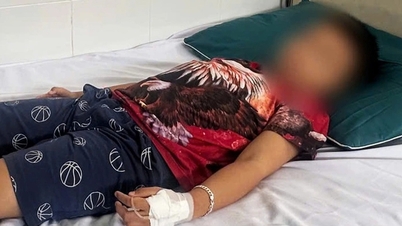


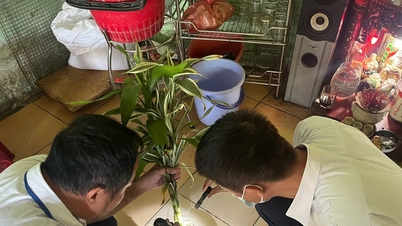

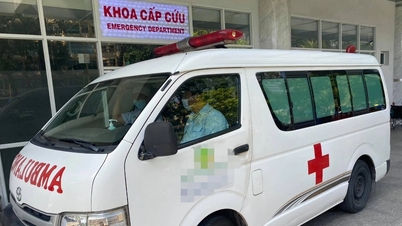

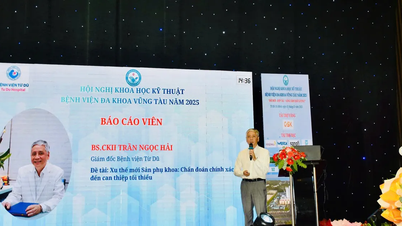
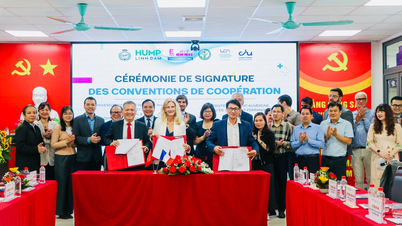






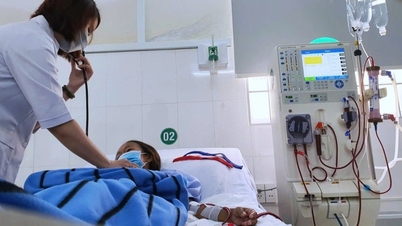







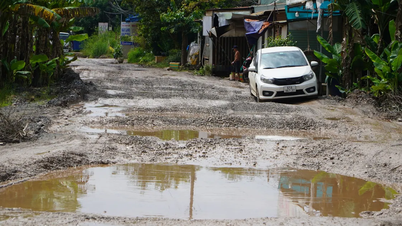

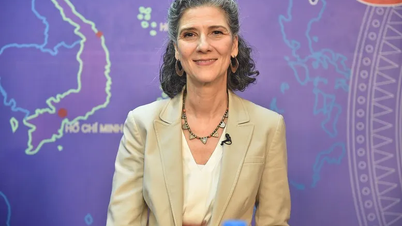















































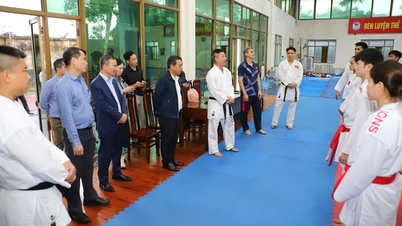



















![Dong Nai OCOP transition: [Article 3] Linking tourism with OCOP product consumption](https://vphoto.vietnam.vn/thumb/402x226/vietnam/resource/IMAGE/2025/11/10/1762739199309_1324-2740-7_n-162543_981.jpeg)



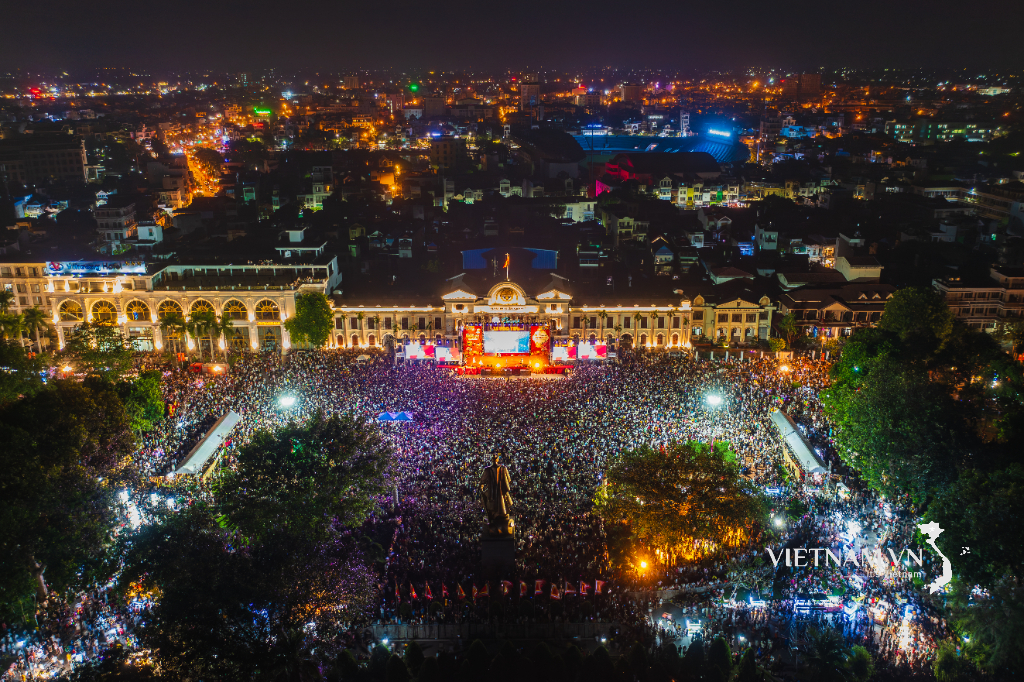



Comment (0)